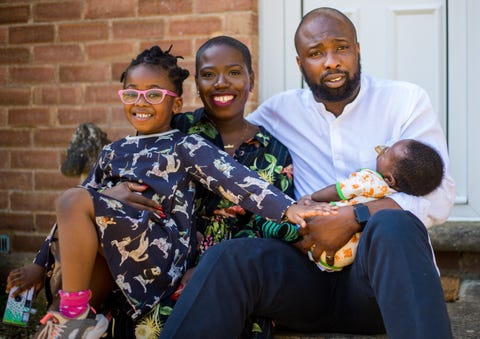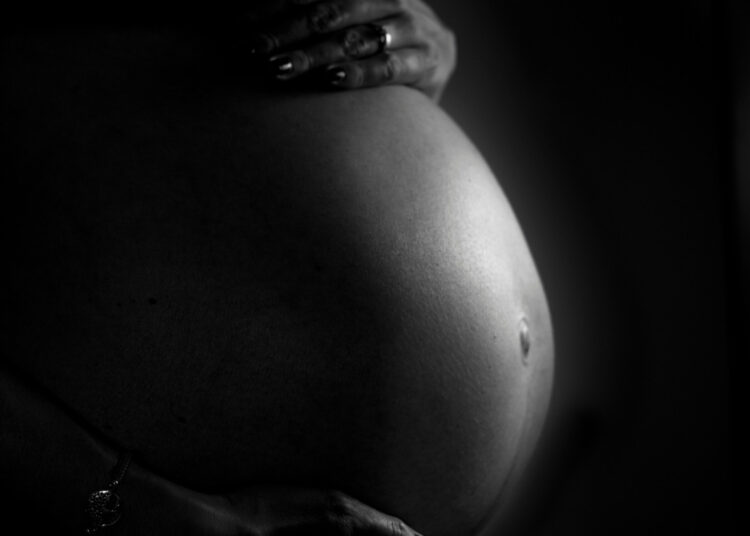The narrative of British motherhood has neglected the majority of black mothers across the UK. A recent enquiry into UK maternal deaths has found that black women are five times more likely to die during or shortly after birth than white mothers. Why are black women dying, and will anything actually change?
Neglected by our health care system, women like author Candice Brathwaite have begun to share their traumatic childbirth stories and have opened our eyes to some of the horrific truths happening right under our noses.
According to the World Health Organisation (WHO), in 2017 810 women across the globe died from childbirth, many of which could have been avoided with proper medical treatment. The majority of maternal deaths are caused by acute bleeding, infection, pre-eclampsia and eclampsia, delivery difficulties and dangerous abortions, all of which are preventable.
These numbers may appear higher than expected, but maternal deaths have been steadily dropping for decades. Maternal deaths have dropped by 38% in the last twenty years, yet the disparity between races remain.
Perhaps the most concerning thing about these figures is the disparity of deaths across different regions of the globe. 94% of maternal deaths occur in lower and middle-income countries. As a result, the majority of mothers dying from childbirth are either from sub-Saharan Africa or southern Asia.

A lack of trained medical professionals, in comparison to the western world, seems to be an overwhelming factor in determining which countries have higher rates of maternal deaths. For instance, in the UK, 90% of childbirths are assisted by a midwife or doctor, however, less than half have this privilege in LEDCs.
Poverty is the dominant force preventing mothers in LEDCs from receiving medical treatment, however, how far you live from a hospital, the quality of the medical treatment and cultural traditions can all play a part in maternal deaths. Yet, what role does race have in all of this?
As women from low-income areas are three times more likely to die in contrast to women from wealthy neighbourhoods, the link between poverty and race in Britain is the missing link in the case of maternal deaths. Approximately half of black and ethnic minority (BAME) British households are living in poverty – in fact, the BAME community are twice as likely as white Britons to experience continuous poverty.

Coronavirus has highlighted that poverty kills and health inequalities are only growing larger in Britain. A disproportionate number of women have to endure their pregnancy alone, without a partner for financial or emotional support.
Between 2014 and 2016, 40 out of 100,000 black British mothers died as a result of childbirth, in comparison to only 8 white women. Candice Brathwaite explains how she felt totally alienated from ‘typical’ British motherhood. As a young black woman, she felt the advice given to expecting mothers was solely targeted at the white community and did not reflect her experience of pregnancy or birth. In fact, Brathwaite claimed that she was treated differently to white mothers, especially by NHS professionals.
Brathwaite references the harmful stereotype of the ‘strong black woman’, which reinforces the notion that black women have to deal with any obstacle in silence and on their own. Ultimately, the poor treatment she received from medical professionals almost killed her. Despite voicing her concern and discomfort many times, Brathwaite developed sepsis shortly after giving birth to her daughter. Sepsis is extremely dangerous, and, without immediate medical care, it can lead to death.
This phenomenon is not isolated to the UK. Influential women of colour, such as Serena Williams and Beyonce, have spoken out about their turbulent pregnancies. Despite this publicity, most women who have experienced racial bias or improper medical treatment during their pregnancy do not have a platform to share their experience.
It is possible that the difference in the numbers may be a result of black women being more prone to certain conditions, like preeclampsia (high blood pressure) or cardiac disease. However, the treatment of mothers by doctors and midwives is key in identifying life-threatening conditions quickly, which, according to mothers like Candice, does not tend to happen. Currently the NHS is failing to protect the lives of the black community in Britain.
Greater research and funding must be invested in maternal health care, particularly looking at those from disadvantaged households. The Royal College of Midwives Pressure Points campaign highlights the government’s serious neglect of postnatal care for mothers and the ‘detrimental effects’ this has on women in Britain.
The Health and Social Care Committee has suggested that the government budget for maternity services need to be raised by a minimum of £200-350 million per annum, as well as granting women the power to claim monetary compensation for their medical mistreatment. Despite the NHS plan to ensure 75% of BAME women have medical care before, during and after birth by 2024, there still needs to be a profound shift in the narrative of British motherhood.
Campaigns you can support:
Make Motherhood Diverse https://www.makemotherhooddiverse.com/
Mums and Tea https://www.mumsandtea.com/















